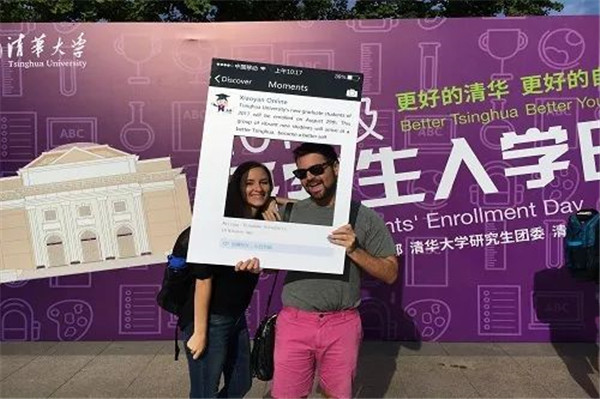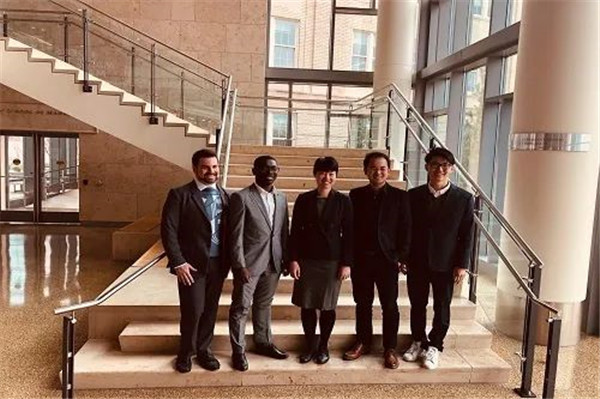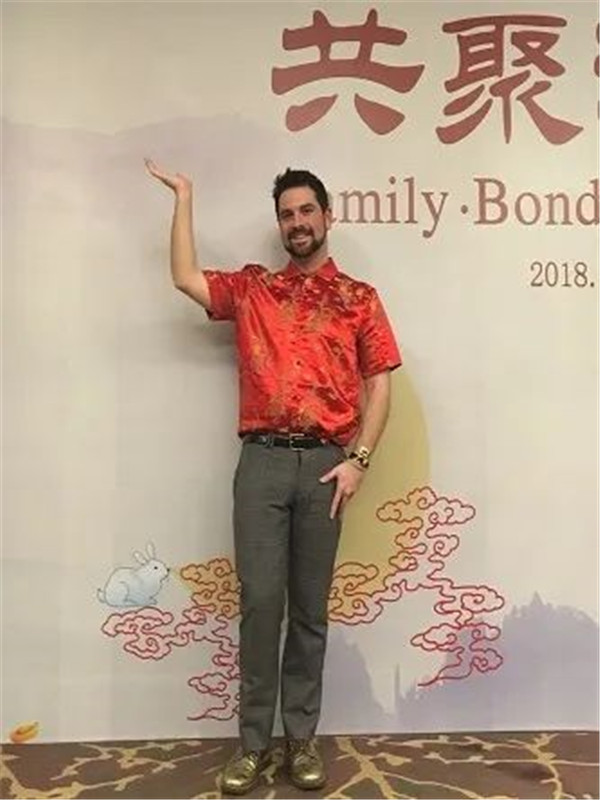来源: 清华MBA 作者:原编 责任编辑:MBAedu 05/09/2020

【中国MBA教育网讯】Summary:Julien Isaacs wanted to stay at the forefront of US-China business. He chose a dual degree; a master’s from MIT Sloan and an MBA from one of China’s leading b-schools.

Julien completed his Tsinghua-MIT dual degree in 2019
Julien Isaacs still remembers teaching English in a small countryside village in Anhui, an eastern Chinese province home to the imposing Huangshan Mountains.
Living with the school’s math teacher, he taught 20 students each day who commuted in from the surrounding towns. Julien’s village housed fewer than 500 people.
The experience was a far cry from his upbringing in Los Angeles, California, but Julien had always had a fascination with Asian culture.
He started studying Chinese at high school age 15. Later, working in product management, he saw China as the place-to-go to deepen his knowledge of global business and stay at the forefront of developments in e-commerce and tech.
A China-US degree
China is a world leader when it comes to technology. For every Western platform, there’s a Chinese equivalent. Alibaba is China’s Amazon; Didi its Uber; WeChat its WhatsApp.
Julien works as a pivot between US and China business. Before his MBA, he worked for a fashion search engine in San Francisco and then a US-China logistics company, helping US companies ship products to the Far East.
When researching business schools for an MBA program, he came across China’s Tsinghua University and the Tsinghua MBA-MIT Master of Science in Management Studies (MSMS) Dual Degree Program, which allowed him to spend a year doing an MBA at Tsinghua in Beijing and a second year completing the MSMS at MIT Sloan.
Like MIT, Tsinghua University School of Economics and Management (Tsinghua SEM) has strong links to the technology sector—Facebook’s Mark Zuckerberg sits on the school’s advisory board. The combination seemed like the perfect fit.
To get accepted, Julien took the GMAT and got around a 700 score. He wrote essays on his personal experiences and career goals and passed a half hour-long Skype interview with a panel of Tsinghua professors.
“They asked a ton of follow-up questions to my essays, about my interest in the program, and behavioral questions as well,” he recalls.
Ultimately, he was offered a scholarship from the Chinese government and the Tsinghua MBA program which covered 100% of his tuition, free on-campus accomodation, and a monthly stipend of 3,000 RMB ($440). “They like to see a commitment to or previous interest in China,” Julien explains.

Life in China
Students on the MBA/MSMS dual degree study the core MBA courses in their first year at Tsinghua—like accounting, leadership, and organizational behavior—and complete a first-year thesis.
Professors from MIT teach several week-long seminars during this time. Julien references an immersive marketing innovation course, led by MIT professor Juanjuan Zhang, as one of his most memorable experiences.
In the second year at MIT, students do elective courses together with other MBA, masters, and PhD students from MIT. The MSMS program functions as the second year of MIT’s MBA curriculum.
For Julien, the MIT portion of the program was a chance to challenge himself academically. His second thesis was over 100 pages long and explored US-China technology dynamics, across areas like cyber security, data, and cloud technology.

In Beijing, from a shared apartment with a single room on-campus at Tsinghua, he experienced the rapid development of technology in China first-hand.
“As an American, living in China is an adventure,” he says. “There’s so much exciting happening in terms of tech and society that in some ways it’s ahead of the US. When I left my dorm, for example, I would never bring my wallet—everything was done by mobile payments on my phone.
“People feel like it’s hard to live in China or there will be a big cultural gap,” he continues, “but people in China are so friendly, they welcome you with open arms.”
During his MBA, Julien visited Alibaba’s headquarters, seeing their VR shopping technology, and JD.com, touring an AI-ready warehouse where robots sorted and scanned packages.
“That made a huge impression on me,” he says. “Tsinghua emphasizes action learning and engaging with community in Beijing. Tsinghua’s ability to organize those connections, because of the resources and connections it has, leads to a lot of job opportunities.”
Collaboration
Julien is now a product manager for an e-commerce software and logistics firm based in LA. He stayed on a similar track, but what he gained from his dual degree, he says, makes him better at his job.
One challenge he faces is the continuing trade war between the US and China. A lot of his career goals are tied up in US-China business, although Julien is confident that there’s a willingness on both sides to build a more collaborative relationship.
Julien often speaks to his former classmates from the US and China to learn what they’re doing in their own cities and industries. Whatever the political context, as an American who went to China for his MBA, Julien urges more of his compatriots to do the same.
“The Chinese economy already is, and is going to be, increasingly important to the global economy,” he says.
“Knowing how China works; how Chinese businesses operate; how to make friends and do business with people in China; that’s is going to be so important—and Tsinghua offers that knowledge.”

Written by Marco De Novellis
Retrieved from www.businessbecause.com
1、凡本网注明“来源:中国MBA教育网”的所有作品,均为中国MBA教育网合法拥有版权或有权使用的作品,未经本网授权不得转载、摘编或利用其它方式使用上述作品。已经本网授权使用作品的,应在授权范围内使用,并注明“来源:中国MBA教育网”。违反上述声明者,本网将追究其相关法律责任。
2、凡本网注明“来源:XXX(非中国MBA教育网)”的作品,均转载自其它媒体,转载目的在于传递更多信息,并不代表本网赞同其观点和对其真实性负责。
3、本网不保证向用户提供的外部链接的准确性和完整性,该外部链接指向的不由本网实际控制的任何网页上的内容,本网对其合法性亦概不负责,亦不承担任何法律责任。
您的每一个有效信息都至关重要
服务热线:010-8286 3124